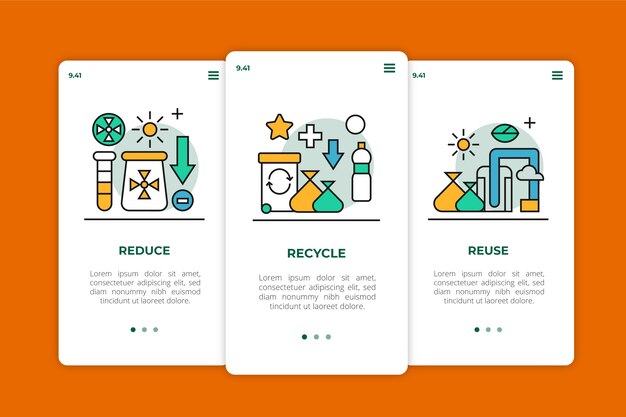Interesting Facts about Recycling

Recycling one aluminum can saves enough energy to power a TV for three hours.
Recycling paper saves trees, water, and energy.
Recycling plastic bottles can save enough energy to power a house for 30 days.
Recycling old clothes reduces landfill waste and pollution.
Recycling glass reduces the need for new raw materials.
Recycling one ton of cardboard saves 46 gallons of oil.
Recycling old electronics prevents hazardous materials from polluting the environment.
Recycling reduces greenhouse gas emissions and helps combat climate change.
Recycling one ton of steel saves 2,500 pounds of iron ore, 1,400 pounds of coal, and 120 pounds of limestone.
Recycling one glass bottle saves enough energy to power a computer for 30 minutes.
Recycling plastic reduces the amount of harmful ocean pollution.
Recycling batteries prevents harmful chemicals from reaching our soil and water.
Recycling reduces the need for new landfills and extends the lifespan of existing ones.
Recycling food waste can be turned into compost, providing nourishment for plants.
Recycling reduces the demand for new products, conserving natural resources.
Recycling reduces water pollution caused by the production of new materials.
Recycling plastic saves 90% of the energy required to make new plastic products.
Recycling is an essential part of a sustainable lifestyle.
Recycling reduces the amount of waste sent to incinerators, helping improve air quality.
Interesting Facts about Recycling part 2
Recycling old tires provides material for playgrounds, athletic fields, and new tires.
Recycling paper reduces the need for deforestation.
Recycling plastic water bottles reduces the amount of oil used in producing single-use plastics.
Recycling saves energy and reduces the need for fossil fuel extraction.
Recycling helps preserve wildlife habitats by reducing the demand for raw materials.
Recycling aluminum cans can be infinitely recycled without losing quality.
Recycling electronics recovers valuable metals like gold and silver.
Recycling reduces the need for new clothing production and its associated environmental impact.
Recycling helps create a circular economy, where materials are reused rather than discarded.
Recycling reduces the amount of waste that enters our oceans, harming marine life.
Recycling reduces the amount of space needed for landfills, allowing for alternative land use.
Recycling plastic reduces the amount of microplastics in our water systems.
Recycling glass can save up to 50% of the energy required to make new glass.
Recycling reduces the amount of energy needed to extract, transport, and refine raw materials.
Recycling is a simple way for individuals to make a positive impact on the environment.
Recycling reduces the reliance on finite resources, preserving them for future generations.
Recycling paper reduces the amount of water and chemicals used in its production.
Recycling reduces the demand for new plastic packaging, which often ends up as litter.
Recycling metals reduces the need for environmentally destructive mining practices.
Recycling reduces the release of harmful pollutants into the air and water.
Recycling plastic bags helps prevent them from becoming litter and endangering wildlife.
Recycling reduces the need for new aluminum mining, which has significant environmental impacts.
Recycling old cell phones recovers rare metals and reduces electronic waste.
Recycling saves money by reducing the costs associated with waste management and disposal.
Recycling organic waste through composting improves soil health and fertility.
Recycling is a crucial step towards creating a more sustainable and eco-friendly future.

